'Concern' Gaza stance may put off Labour Muslim activists in Luton
- Published
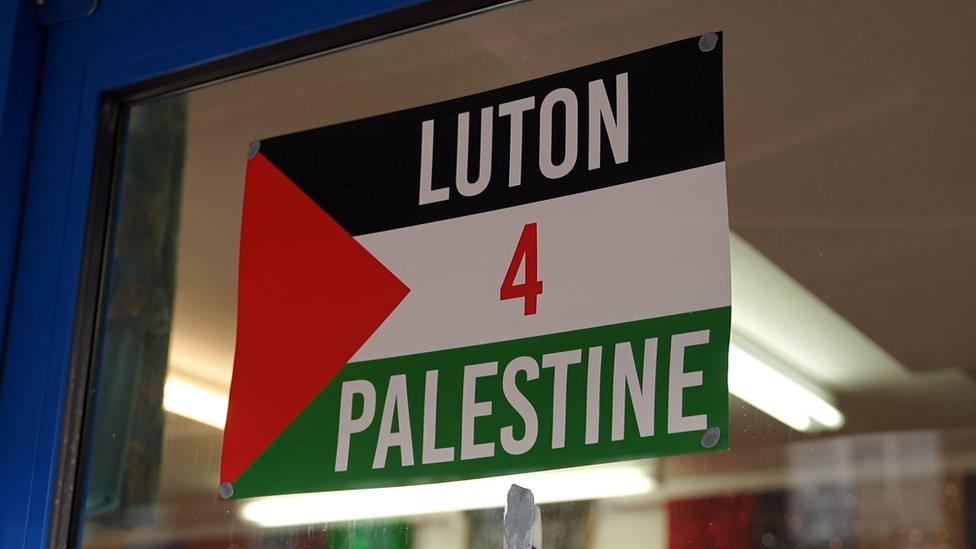
Luton has seen regular pro-Palestine demonstrations and fundraising
Labour members might not campaign for the party due to its position on Gaza, a council leader has admitted.
Luton Council leader Hazel Simmons said it was a "concern" and a "possibility" that Muslim members might down tools, though she had not seen it happen yet.
The Israel-Gaza war has exposed deep divisions within Labour. In February, the national leadership called for an "immediate humanitarian ceasefire".
All of Luton's councillors voted unanimously to call for a ceasefire.
That cross-party vote, on 14 November, was followed by the town's two Labour MPs quitting shadow front bench positions after supporting an amendment to the King's Speech in Parliament.
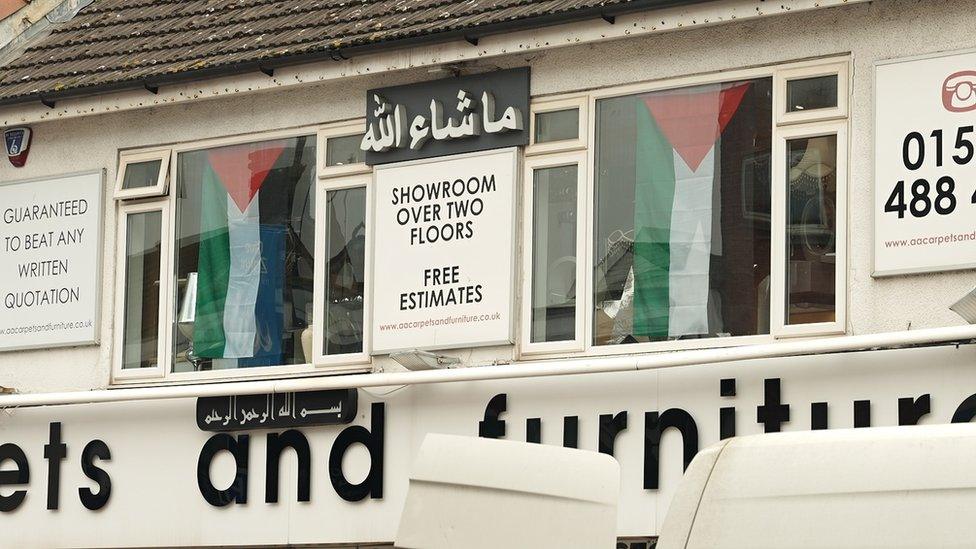
The 2021 Census showed both Luton's constituencies were at least 30% Muslim
Sarah Owen, Luton North MP, and Rachel Hopkins, MP for Luton South, said on social media, external the amendment demanded "the immediate end to violence against innocent civilians, the release of hostages and the vital access of humanitarian aid into Gaza".
Israel invaded Gaza following attacks by Hamas that killed about 1,200 people on 7 October. Israeli Prime Minister Benjamin Netanyahu said his government's aims were the destruction of Hamas and the return of the hostages.
Many political leaders, including British Labour leader Sir Keir Starmer, said Israel had a "right to defend herself, external".
More than 30,000 Palestinians have been killed, and tens of thousands injured by Israeli strikes since the start of the war, according to Gaza's Hamas-run health ministry.
Luton, where about 30% of people are Muslim, has seen regular pro-Palestine demonstrations, which have often criticised the local and national Labour party's stances.
The Labour Muslim Network has said the "future relationship, external" between the Muslim community and Labour is at "crisis point".
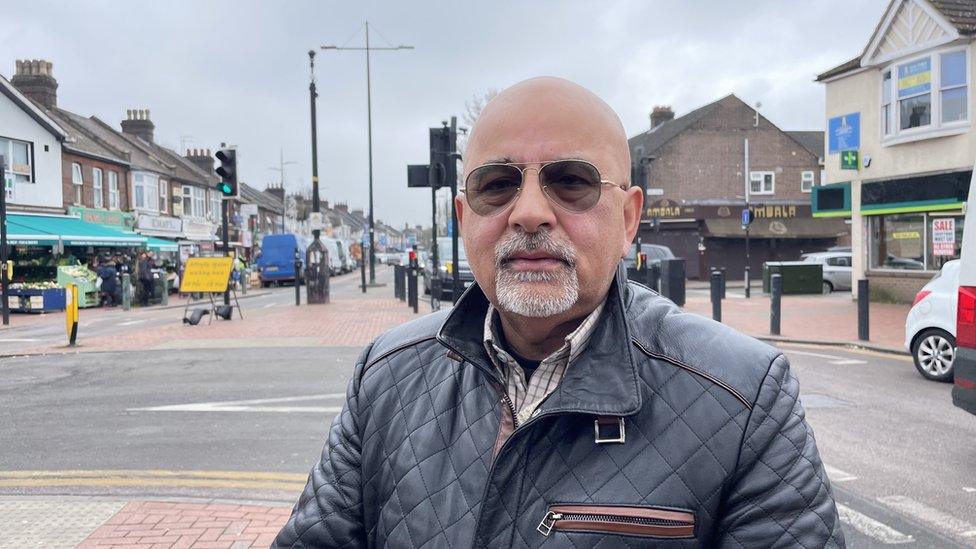
Fahim Qureshi said Luton's Asian Muslim community may be unwilling to campaign for Labour
Fahim Qureshi, a 63-year-old who described himself as a "grassroots activist" in Luton, left the Labour party in 2022.
He said some in the town's Muslim community were "very distraught" over the response to the Israel-Gaza war.
"There's anger at the hypocrisy they see from mainstream politicians," he said.
"This level of distress, despair and anger that's galvanised people – I don't think I've ever seen it in the town before, not at this level."
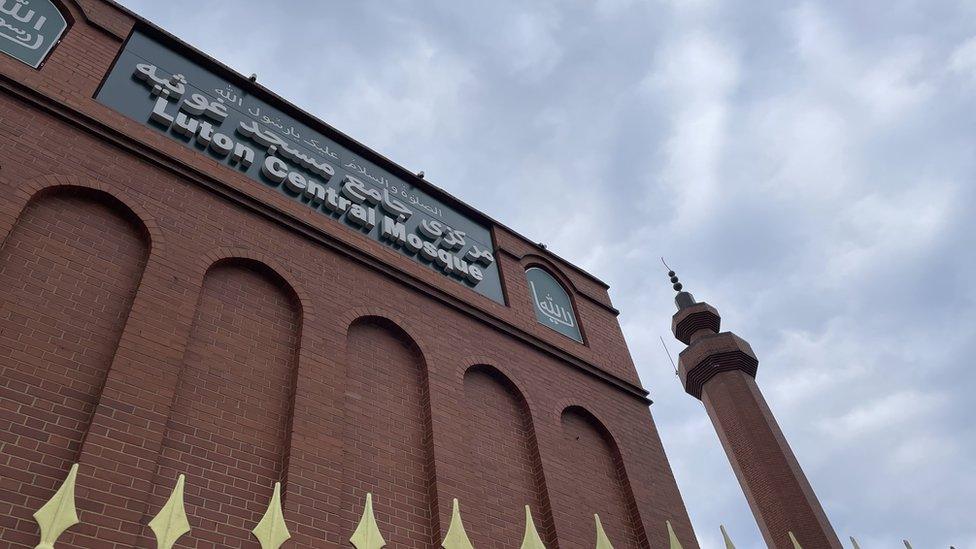
Luton Central Mosque opened in 1982 and was the town's first purpose-built mosque
Mr Qureshi predicted the anger would have "tremendous impact" at the ballot box "in the months and years to come", including at a UK general election, which must happen by 28 January 2025.
"In the [Luton] Labour party, the foot soldiers have been the Muslim members, the Asian Muslim members. They've gone out and done canvassing, leafleting, knocking-up potential voters, running the election centres in different wards on election day – I don't think that's going to happen," he said.
"Also, I don't think our councillors and activists will be welcome on doorsteps when they go knocking for Labour."
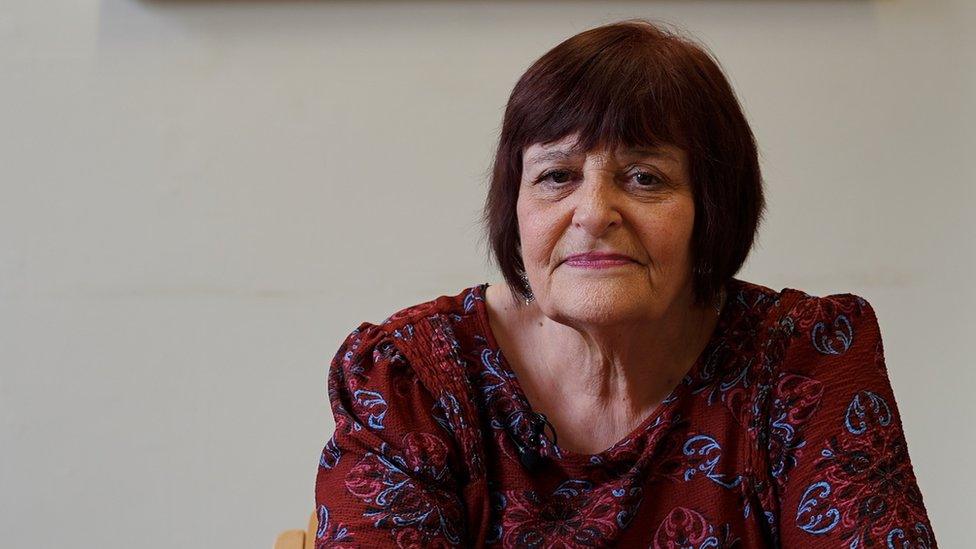
Hazel Simmons said Labour would "go out" and "try to sell the Labour message"
Responding to Mr Qureshi's claim, Ms Simmons told BBC Politics East: "Obviously it's a concern – yes, it's a possibility.
"That's not what we've found to date, but I fully accept that there could be people who don't wish to campaign for Labour.
"But the Labour Party will carry on and will go out and knock on doors and try to sell the Labour message."
Ms Simmons said she "absolutely" understood the "anger of the community across the country" and that scenes in Gaza were "absolutely horrific".
"That's why the council called for an immediate ceasefire," she said.
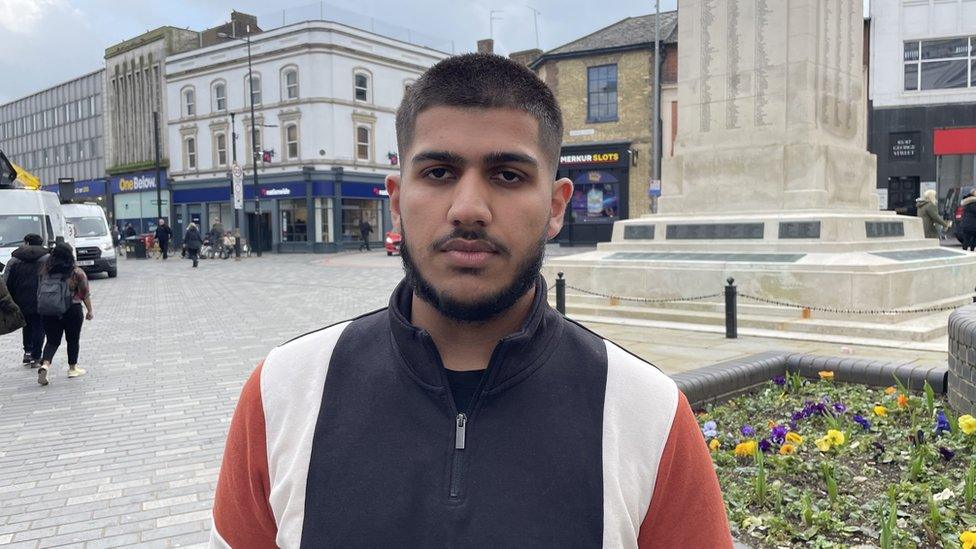
Arsalan will vote in his first general election and expects people in Luton will choose carefully who to vote for
Arsalan, 17, helped organise protests among Luton's sixth formers.
He believed people locally "will be much more careful with their vote this time".
"I know from my working class family – we used to just go out and vote Labour. However, this time it's not the case," he said.
"I think since this Gaza situation's happened, a lot more people are paying attention to what maybe Rishi Sunak's saying, what the Labour Party is saying, what the Conservatives are saying, compared to the past – because they're talking about issues that they dearly and deeply care about."
In 2003, Labour lost control, external of Luton Borough Council, with the Liberal Democrats taking the leadership. The Lib Dems said the Iraq war, which began less than two months before the local elections, was in part to blame.
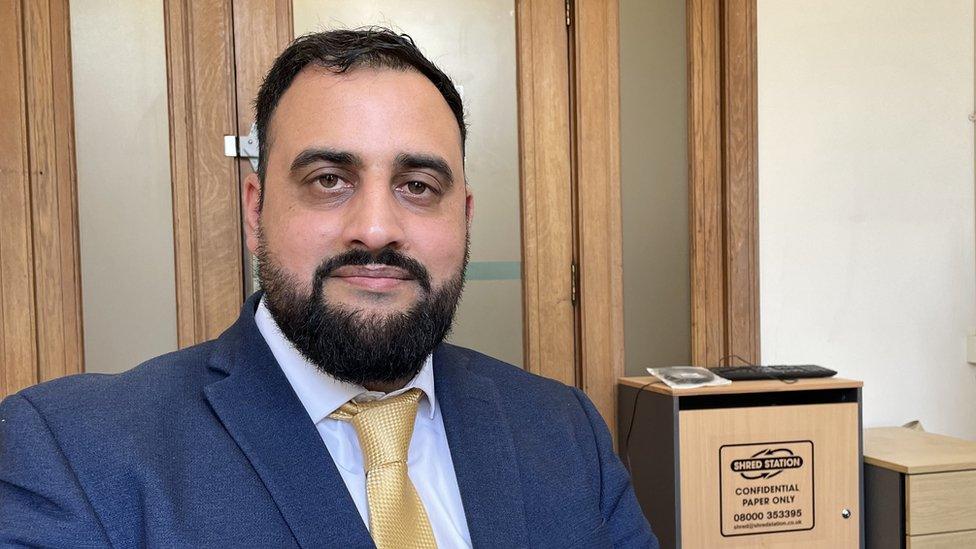
Amjid Ali said it was not just the Muslim community that has been protesting about Gaza
Amjid Ali, the Lib Dem leader in Luton, said his party was seeing new members joining.
But he said anger in communities was not confined to Gaza and that it was not just Muslims who were protesting about the Middle East.
"We've had so many years of austerity, the cost of living crisis, the ongoing issues with everything – the bills going up, the fuel going up," he said.
"People are at a very hard-knock stage at the moment, so there are going to be people that are frustrated, they are going to be angry and I think that's across the board, rather than just in Luton or any particular community."
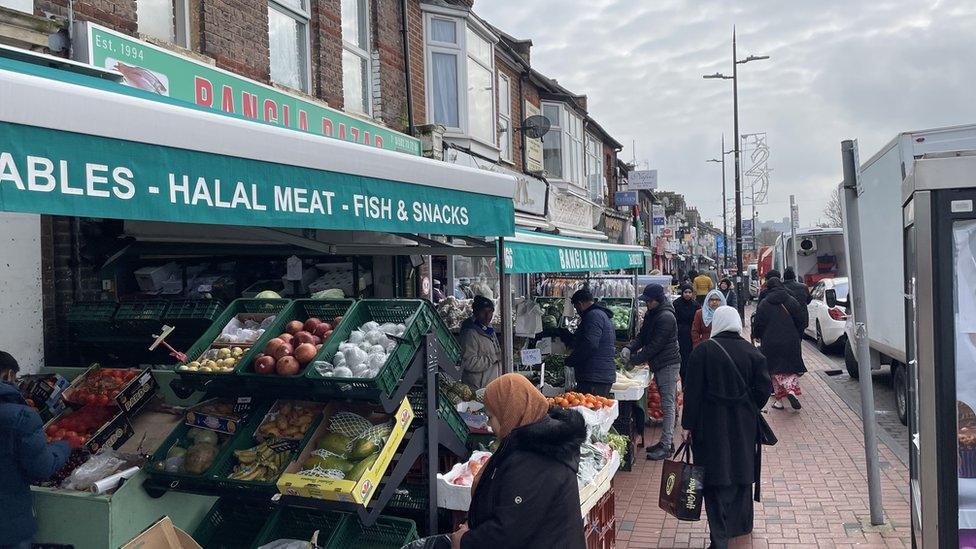
Luton is not due to have local elections until 2027 but voters will see a general election by the end of January
BBC Politics East will be broadcast on Sunday, 10 March at 10:00 GMT on BBC One in the East of England, and will be available after broadcast on BBC iPlayer.

Follow East of England news on Facebook, external, Instagram, external and X, external. Got a story? Email eastofenglandnews@bbc.co.uk, external or WhatsApp us on 0800 169 1830